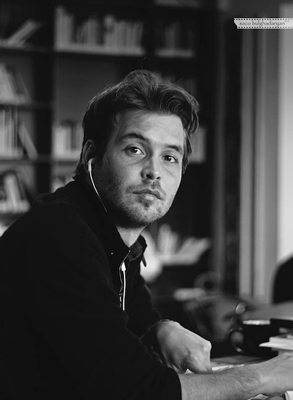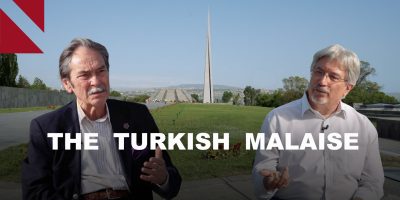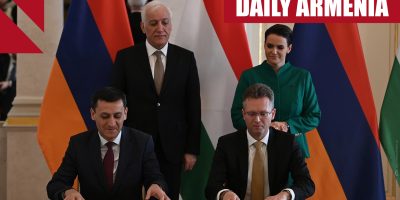 An opinion column is a space given to a person to express his ideas, his feelings, his thoughts, and his stances. The post about Conchita Wurst last week belongs to this category. Like a journalist reporting the facts, decrypting them, and trying to give the best analytical framework to his readers, one who wishes to publicly express his ideas must respond to those who willingly add their comments, whether these comments criticize, approve or even entirely reject the content.
An opinion column is a space given to a person to express his ideas, his feelings, his thoughts, and his stances. The post about Conchita Wurst last week belongs to this category. Like a journalist reporting the facts, decrypting them, and trying to give the best analytical framework to his readers, one who wishes to publicly express his ideas must respond to those who willingly add their comments, whether these comments criticize, approve or even entirely reject the content.
This is why I wanted to write this second post, both to respond to the many comments I received on my article translated into Armenian (I’m very grateful to a colleague and friend at CivilNet who helped me with the translation), and also to address the important question, although not a new one, of the legitimacy of writing outside of one’s country, in a different cultural and social context.
Journalism and opinion columns should be participatory and an ongoing dialogue with readers, especially since the advent of new technologies that allow users, regardless of their status, to take part in the debate. No opinion post and no article can be sufficient in itself. Everything can be enriched by the contributions of tens and sometimes hundreds or thousands of people who read and contribute their reviews, suggestions, comments. Nietzsche said, “Convictions are more dangerous enemies of truth than lies.” Therefore one should always remain vigilant when expressing ideas publicly and should always consider the other: his analysis, his point of view, his sensitivity.
Comments received last week fell into two categories.
First there were those, which I expected, of rejection. Constant in the history of debates, invective and denial of the other’s identity are classic ways to avoid talking about the fundamental issue. Indeed, I have been called a number of derogatory names, which I will not enumerate here. Beyond these insults, what I take issue with in these comments is the easiness, that of avoiding the heart of the matter to hide behind insults, the incarnation of irrational fears, often fed by other factors.
The other comments focused on the core topic of the article and I thank those who openly expressed their opinions. I want to try to briefly respond to them here.
To those who spoke about LGBT propaganda, I want to first call to mind the definition of the word propaganda, which refers to a systematic action imposed on others to force the acceptance of certain ideas or doctrines. Homosexuality and the different forms of sexuality are not ideas or doctrines. They are human realities with their share of stories, passions, sufferings, and, of course, loves. They are uncles, nieces, fathers, mothers, sons, and daughters. People close to me and you, forced to leave their country in order to freely live their identity. Or worse, forced to live within themselves, hidden, buried in self-denial, leading a double life.
I do not wish this life on anyone, because exile from one’s country or one’s identity is something heartbreaking. So, to those who speak of propaganda, in Armenia but also in France and other places, do not put ideology or doctrine where there is only life and, still too often, suffering.
This criticism also applies to all speeches that still insist on an alleged “natural order” imposed by theological discourse in total disregard of human reality, diversity, and complexity. But this point deserves more debate and in-depth discussion as the topic exacerbates sensitivities and the truths and dogmas imposed for centuries by various churches, still have strong influence in our contemporary societies.
I want to conclude this post on the topic of the legitimacy of a foreigner writing outside of his country. Many comments made these reproaches: “Leave the country, foreigner!” “Keep your ideas from where you come from.” It’s interesting, because sometimes we hear these same remarks in France about “foreign” writers, composers. A well-known singer, whose name I can’t recall, once said: “There have never been as many foreigners in the world.”
It is a truism to say that ideas know no borders, and fortunately so, because otherwise France would have missed the beauty of Armenian architecture in many of its cities as well as the sweet melodies of the great composer Komitas. And fortunate, too, that the famous resistance fighter, Missak Manouchian, did not stop at the borders of his Armenian origin to come defend Paris against the Nazis in the Second World War. I want to use this article to honor him.
If I’ve decided to write here, it’s because I have fallen under Armenia’s charm. Since I arrived here, my endeavor has been to understand – through books, discussions, people’s expressions – what makes Armenian culture what it is. And now I have chosen to stay and live here for some time more.
Expressing and debating ideas is one of the sources of openness, change and movement. It is a perpetual exchange, where everyone gives and receives. This is the heart of the democratic idea, which is embodied through constant invention and revolution.
Guillaume Noir de Chazournes
















